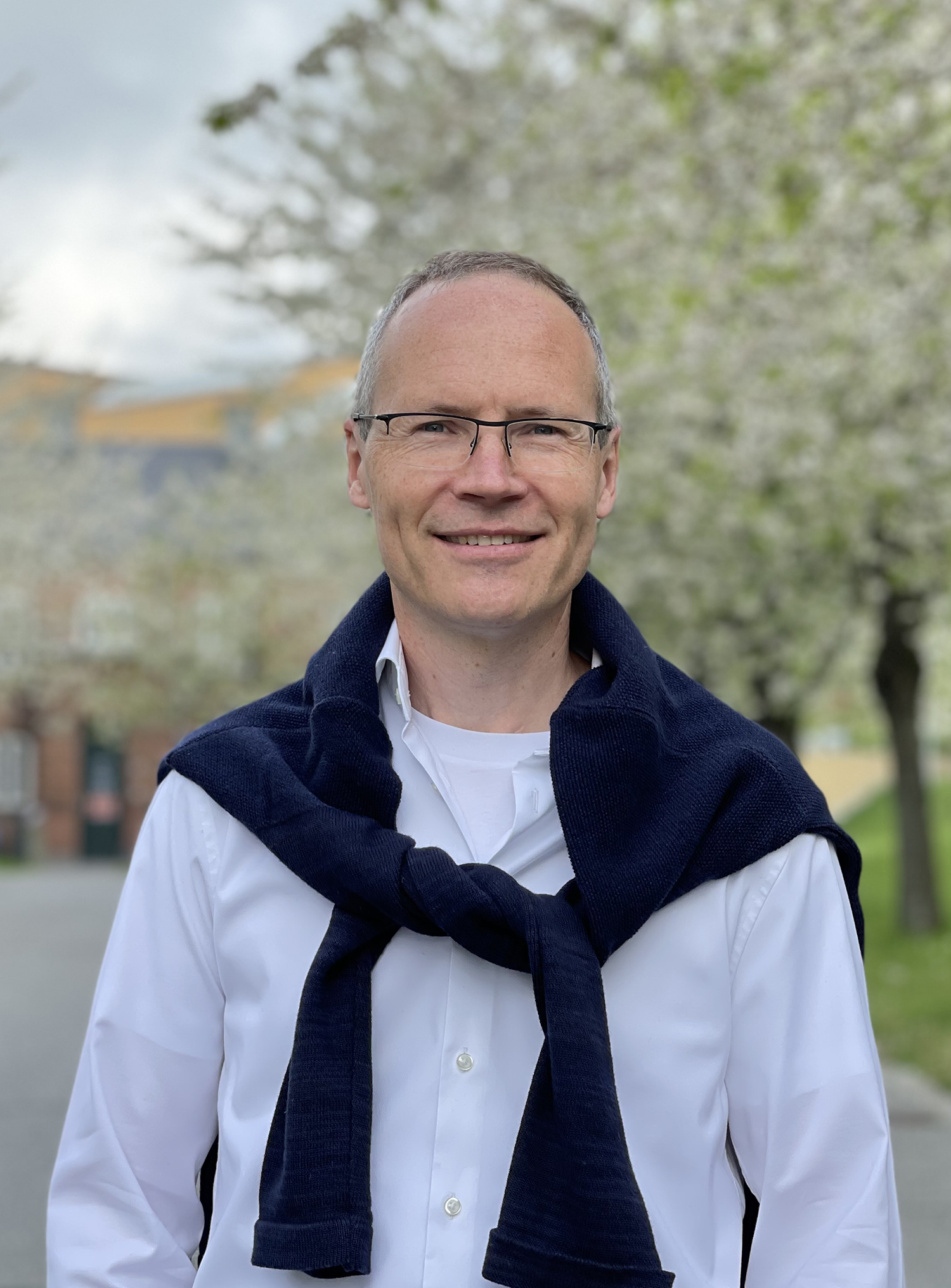Ditlev Egeskov Brodersen has been appointed Professor of Structural Microbiology
Ditlev Egeskov Brodersen has been appointed Professor of Structural Microbiology to study microbial survival mechanisms at the Department of Molecular Biology and Genetics at Aarhus University as of 1 June 2021.

When we treat bacterial infectious diseases such as sinusitis and otitis media, and the more serious ones such as pneumonia, urinary tract infection and sepsis, with antibiotics, resistance develops over time, as we know from MRSA, for example. In the long run, the consequence of this will be that our arsenal of antibiotics is no longer enough, and that many more will therefore unfortunately die due to infections that could have been avoided. In fact, the WHO predicts that by 2050, more people will succumb from resistant infections than from cancer, which means more than 10 million people annually worldwide. Therefore, resistant infectious diseases are very high on the list of humanity's biggest health challenges.
In order to tackle this challenge, we need to develop new types of antibiotics, and in order for that to be possible, we need to know the built-in survival mechanisms of microorganisms. And these are precisely the mechanisms that Ditlev E. Brodersen, who has now been appointed professor, is studying. Using advanced data analysis, very large collections of bacterial genomes are first searched for potential, novel survival mechanisms, after which these are retrieved and analysed using advanced visualisation techniques that involve very strong X-rays from so-called synchrotron sources, as well as electron microscopes.
By using these methods, the smallest molecular details of the bacterial defence systems can be unraveled, and the vision is that in the future we can use this knowledge to develop new forms of treatment. As professor, Ditlev E. Brodersen will study a large number of such mechanisms and examine samples directly from patients undergoing treatment to understand what happens to the bacteria when antibiotics are used.
About Ditlev Egeskov Brodersen
Ditlev E. Brodersen has a Master's degree in chemical biotechnology from 1997 from Aarhus University and subsequently a PhD degree from 2000 in structural biology with associate professor Morten Kjeldgaard as supervisor.
Here, Ditlev Brodersen developed an interest in studying the molecular details of microbes. To pursue this interest, he worked during the period 1999-2003 at the world-renowned research institute Medical Research Council in Cambridge, England, where he – with support from both the European Molecular Biology Organization (EMBO) and the Human Frontiers Science Program (HFSP) – helped unravelling what the protein-producing machinery in bacteria, called the ribosome, looks like in great detail. This result contributed to Ditlev E. Brodersen's mentor, Venki Ramakrishnan, in 2009 receiving the Nobel Prize in Chemistry for his discovery. Subsequently, Ditlev Brodersen studied how antibiotics bind to the protein machinery and upset the applecart.
In 2003, Ditlev E. Brodersen received the Novo Nordisk Foundation's Senior Researcher Grant of DKK 5 million to head up a new research group at Aarhus University with a focus on the fundamental, molecular mechanisms in microorganisms such as yeast and bacteria. In 2008, Ditlev E. Brodersen was appointed associate professor at the Department of Molecular Biology and Genetics, where he has led his research group for more than 15 years.
Throughout his career, Ditlev E. Brodersen has participated in strong research constellations and collaborated with leading researchers at home and abroad. These include two centres of excellence funded by the Danish National Research Foundation, "mRNP biogenesis and metabolism”, 2005-2015, and "Centre for Bacterial Stress Response and Persistence", 2015-2019.
For many years, Ditlev E. Brodersen has also been deeply involved in the teaching of molecular biology and molecular medicine students, and in this connection, he has made a significant contribution to the development of modern, digital teaching methods. These include new techniques for so-called "peer review", where students assess each other's performance, for which Ditlev E. Brodersen in 2017 received the ST Education Award at Aarhus University.
In recent years, Ditlev E. Brodersen has especially focused on the development of teaching in structural biology in order to give students at Aarhus University insight into the fundamental mechanisms that he studies.
In 2017, Ditlev E. Brodersen received the Novo Nordisk Foundation's Ascending Investigator grant of DKK 10 million in recognition of his achievements in research into structural microbiology. From 2017-2020, Ditlev E. Brodersen was also a visiting professor at Parma University in Italy, where he has contributed to the internationalisation of the PhD programme.
Ditlev E. Brodersen is 49 years old, married to Mie Lindeman Olsen, who is a teacher of biology, chemistry and biotechnology at Marselisborg Gymnasium (Upper Secondary School), and together they have three children.
Popular description of Ditlev E. Brodersen's research.
For further information, please contact
Ditlev E. Brodersen
Department of Molecular Biology and Genetics
Aarhus University, Denmark
Tel. +45 21669001, email deb@mbg.au.dk
